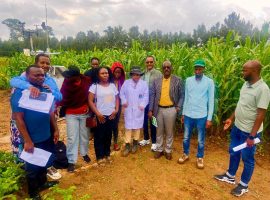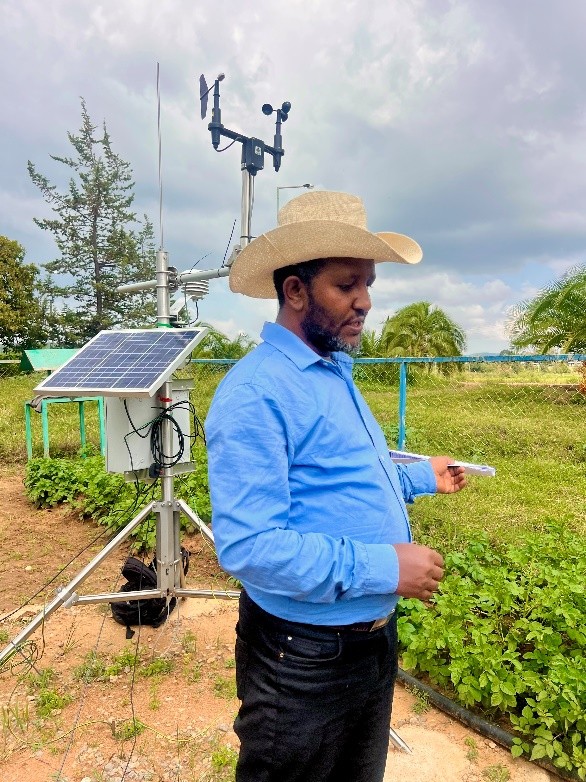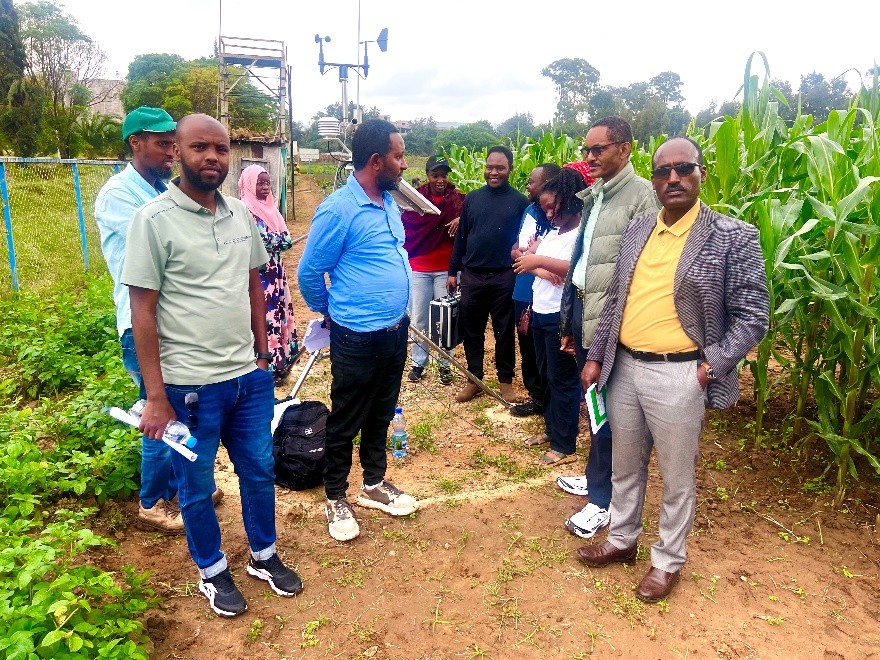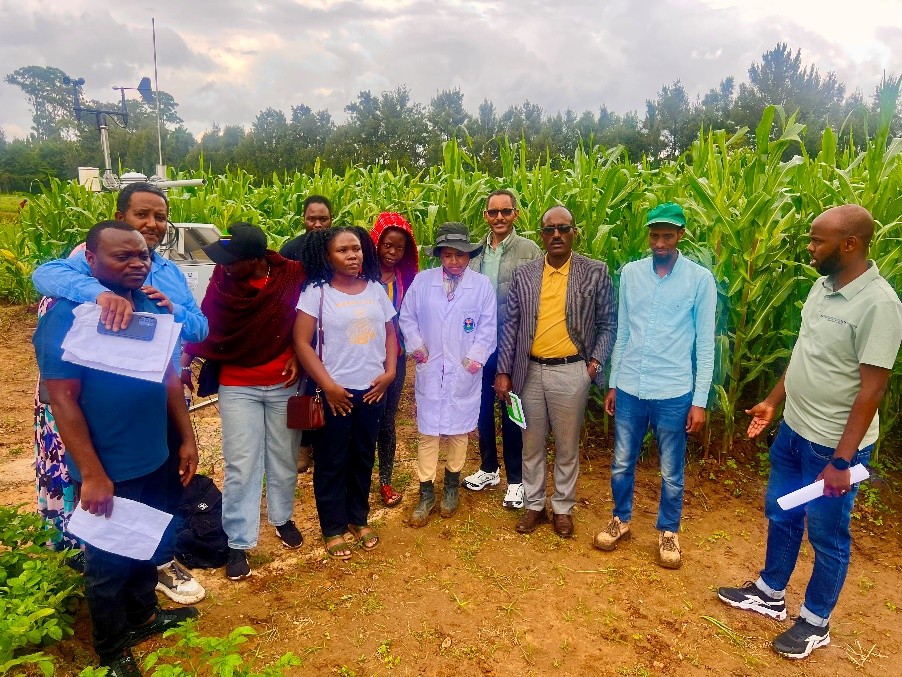The Africa Center of Excellence for Climate-Smart Agriculture and Biodiversity Conservation (ACE Climate SABC) – Haramaya University has achieved a significant milestone with the successful assembly, installation, and operationalization of the institution’s first sensor-based environmental monitoring system.
Installed at the maize experimental research site of one of our PhD students, Mr. Ephrem Mamo Weledekidane, the system includes a fully functional Automated Weather Station (AWS) and a multi-depth soil profiling network powered by SoilVUE10 and TEROS 11 sensors. The AWS integrates multiple atmospheric and environmental sensors – including wind speed and direction (R.M. Young), air and soil temperature probes (CS109, CS109SS), and barometric pressure sensors – all coordinated through a Campbell Scientific CR300 datalogger connected to a CELL215 4G modem for remote access and data transmission.
The system operates autonomously using a solar-powered-rechargeable battery setup, ensuring continuous power supply (UPS), operation and data reliability. Beyond routine monitoring, the setup enables real-time data visualization, programmatic control, and remote communication — advancing Haramaya University’s capacity for precision environmental research.
This sensor-based system is not only a first of its kind technological at the university but also a research enabler for climate-smart innovation across Eastern Ethiopia and beyond. The collected high-resolution datasets are already being integrated into an ongoing PhD research of Mr. Ephrem Mamo Weledekidane which focuses on mulch-soil-plant-atmosphere interactions.
More specifically, the data supports the Mulch-SPAC (Soil-Plant-Atmosphere Continuum) Model, a new process-based simulation framework developed to analyze coupled heat and moisture dynamics under organic mulching conditions. The model leverages the sensor-based field data for parameter calibration, validation, and system optimization, enabling deeper understanding of how mulch treatments influence soil thermal and hydrological regimes.
The project demonstrates how sensor-based environmental monitoring can transform research efficiency and decision-making in agriculture – a key pillar for climate-smart adaptation strategies.
The successful deployment of this integrated research system reflects ACE Climate SABC’s vision to promote data-driven, sustainable agricultural systems that enhance productivity, resilience, and resource conservation in the face of climate change.
ACE Climate SABC- Haramaya University is proud for funding and supporting this pioneering effort. The center gratefully acknowledges Haramaya University’s leadership and the dedicated research team whose commitment made this milestone possible.



